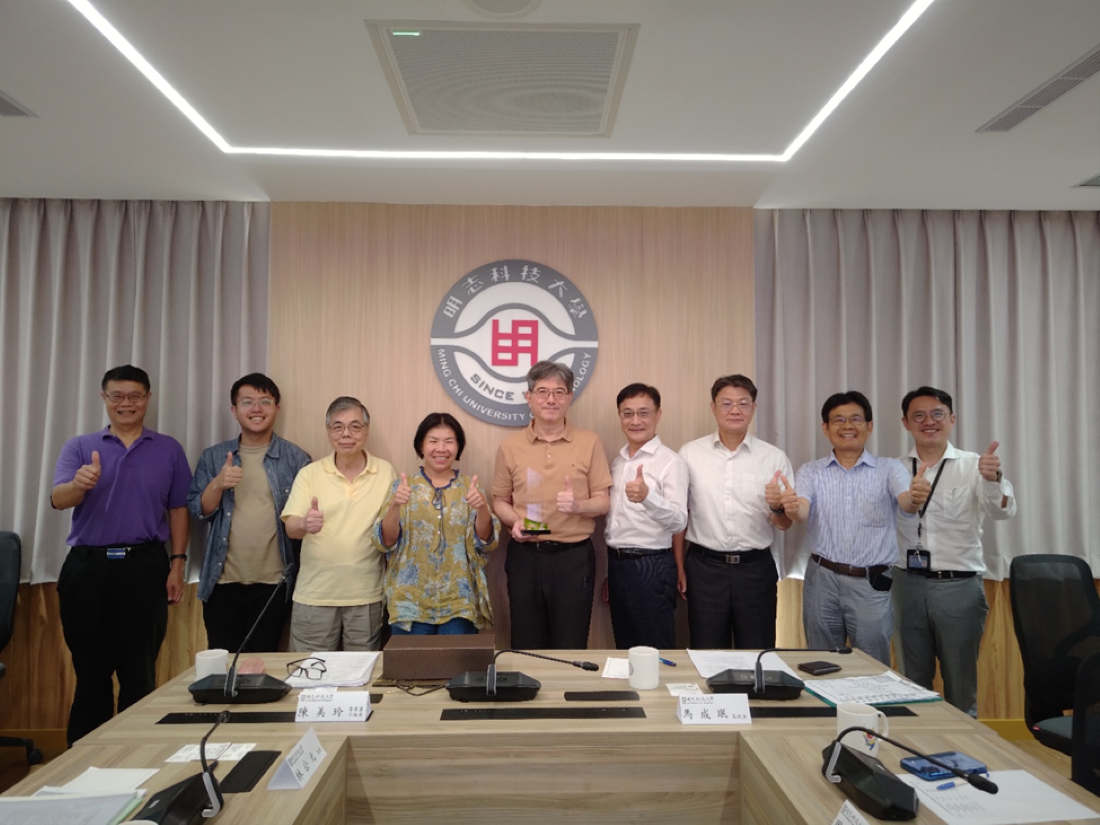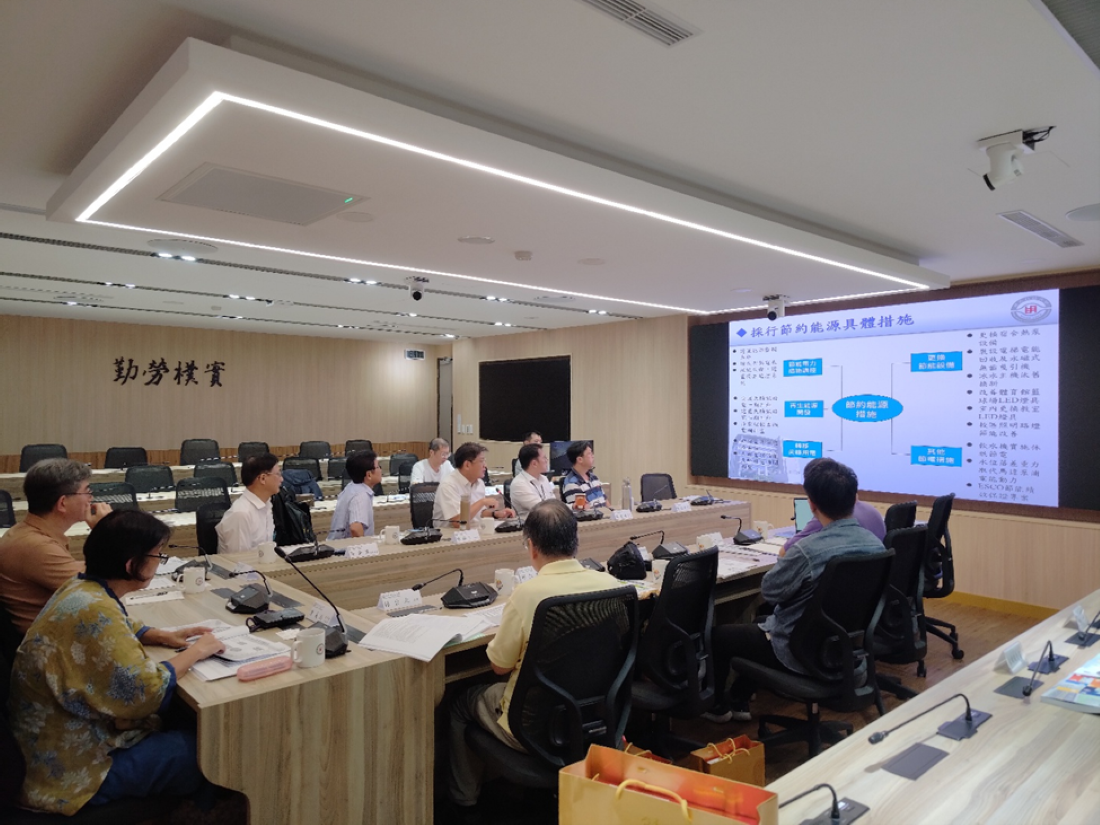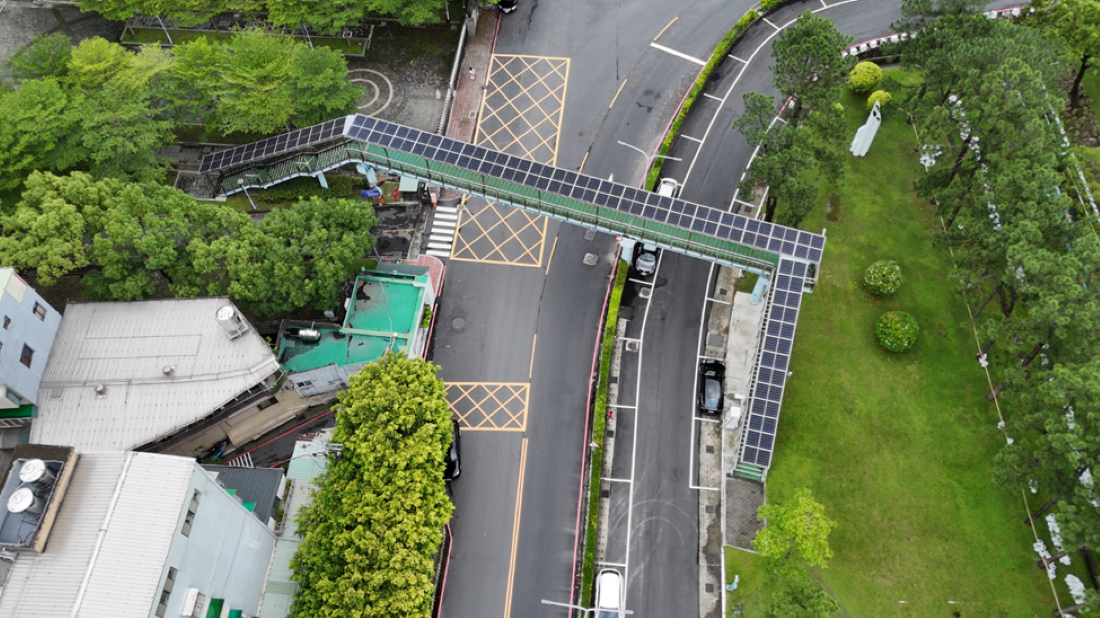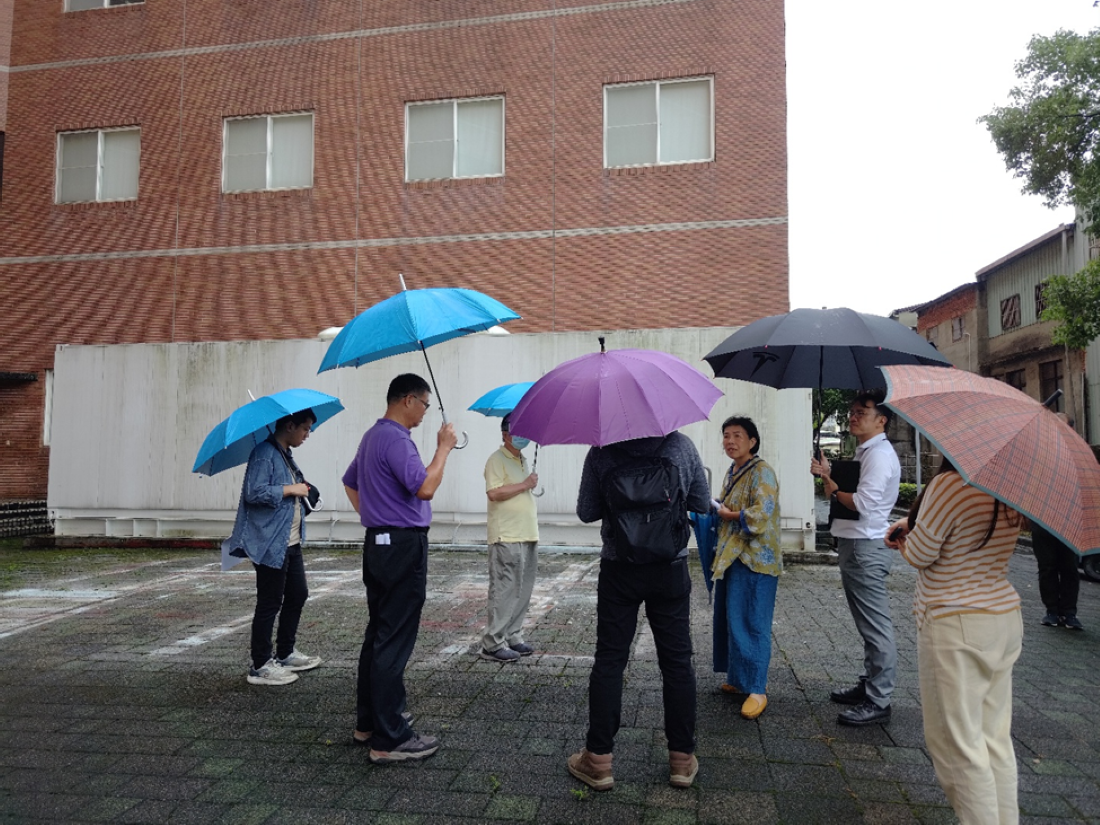【Award Information】Ming Chi University of Technology Participates in Ministry of Economic Affairs Energy Conservation Benchmarking AwardOn-site Review, Showcasing Green and Smart Campus Achievements
On July 10, 2025, Ming Chi University of Technology (MCUT) was subject to an on-site evaluation conducted by the judging panel for the Energy Conservation Benchmark Award organized by the Ministry of Economic Affairs (MOEA). The visit was led by Dr. Cheng-Min Ma, Vice President and Chief Sustainability Officer, who presented the university’s long-standing achievements in smart energy conservation, energy management, and sustainable campus development. The review panel highly commended the university’s efforts.
The judging panel focused on several of MCUT’s exemplary energy-saving initiatives. A key highlight is the university’s strong commitment to solar energy development. The total capacity of the installed and planned solar photovoltaic systems has reached 1,002.78 kWp, with an estimated annual electricity generation exceeding 1 million kWh—equivalent to more than 5% of the campus’s total electricity consumption. This contributes to a reduction of over 474 metric tons of CO₂e annually and underscores the university’s strategic commitment to sustainable development.
The innovative integration of solar panels, energy storage systems, and electric vehicle (EV) charging infrastructure on the pedestrian bridge received particular commendation. This project comprises a 30 kWp solar PV array, a 200 kWh energy storage system, and six EV charging stations, forming a microgrid capable of islanding operation (i.e., functioning independently in case of grid outages). This configuration enhances the campus’s energy resilience and contributes to an annual carbon reduction of 17.5 metric tons. The system also supports both pedagogical and research applications and holds potential as a demonstrative model for future virtual power plant deployment. The initiative is primarily self-funded, with over 80% of the budget covered by the university and the remainder supported by government subsidies—reflecting MCUT’s strong financial and strategic investment in sustainability.
In addition, the university has deployed a large-scale 2,100 kWh energy storage system to enable peak shaving and load shifting—strategies that adjust power usage based on time-of-use electricity pricing—resulting in annual savings of approximately NT$1 million. Complementary energy-saving measures include the installation of regenerative braking systems for elevators in the Gymnasium and General Building, as well as a gravity-fed water supply system for pumping, all contributing to tangible efficiency gains.
On the management and implementation front, MCUT has established a smart metering system and energy management platform to enable real-time monitoring and optimization of campus-wide electricity usage. Gradual integration of departmental monitoring and laboratory control systems is underway. These technical efforts are reinforced by internal incentive programs and proposal competitions, actively engaging faculty and students in energy conservation practices.
In the academic sphere, MCUT offers over 500 courses related to Sustainable Development Goals (SDGs), particularly SDG 7 (Affordable and Clean Energy) and SDG 13 (Climate Action), aiming to cultivate a generation of sustainability-minded professionals.
Looking ahead, the university is committed to further optimizing its campus energy infrastructure, phasing out high-consumption equipment, enhancing intelligent monitoring systems, and strengthening sustainability education. Through these concrete actions, MCUT seeks to pave the way for an innovative, scalable, and replicable model of a green smart campus.



